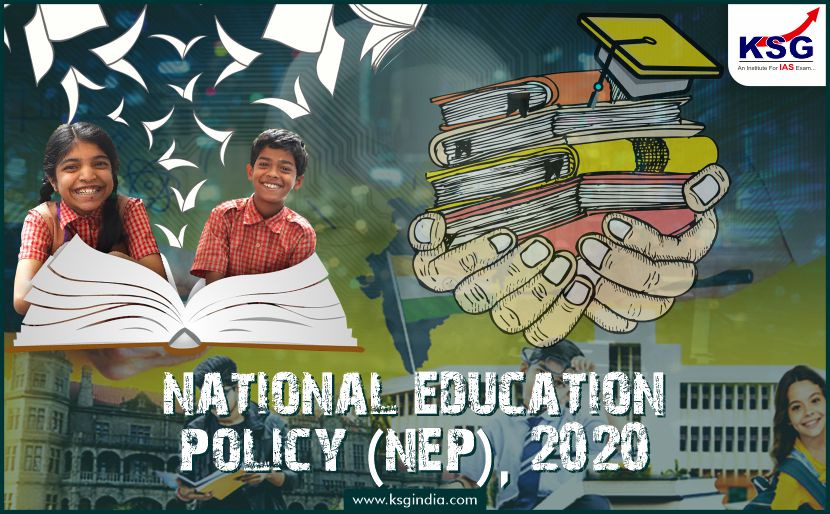National Education Policy (NEP), 2020

On the first anniversary of the National Education Policy (NEP), the Centre plans to officially roll out some initiatives promised in the policy, such as a credit transfer system
National Education Policy (NEP), 2020

On the first anniversary of the National Education Policy (NEP), the Centre plans to officially roll out some initiatives promised in the policy, such as a credit transfer system that will allow multiple entry and exit options in higher education, as well as engineering programmes in regional languages.
Why Need a New policy?
Indian education system has been running on the traditional approaches and methodologies for more than three decades. Technological advancement with the advent of the Internet has changed the whole world but the ladder to reach that advancement was not modified.
Some important features:
- The policy aims to increase public investment in education from 4% of India’s GDP to 6%.
- Opening up of Indian higher education to foreign universities.
- Dismantling of the UGC and the All India Council for Technical Education (AICTE)
- Introduction of a four-year multidisciplinary undergraduate programme with multiple exit options.
- In school education, the policy focuses on overhauling the curriculum, “easier” Board exams, a reduction in the syllabus to retain “core essentials” and thrust on “experiential learning and critical thinking”.
- In a significant shift from the 1986 policy, which pushed for a 10+2 structure of school education, the new NEP pitches for a “5+3+3+4” design corresponding to the age groups 3-8 years (foundational stage), 8-11 (preparatory), 11-14 (middle), and 14-18 (secondary).
- This brings early childhood education (also known as pre-school education for children of ages 3 to 5) under the ambit of formal schooling.
- The mid-day meal programme will be extended to pre-school children. The NEP says students until Class 5 should be taught in their mother tongue or regional language.
- The policy also proposes phasing out of all institutions offering single streams and that all universities and colleges must aim to become multidisciplinary by 2040.
Is it mandatory for Governments to implement NEP?
The NEP only provides a broad direction and is not mandatory to follow. Since education is a concurrent subject (both the Centre and the state governments can make laws on it), the reforms proposed can only be implemented collaboratively by the Centre and the states.
